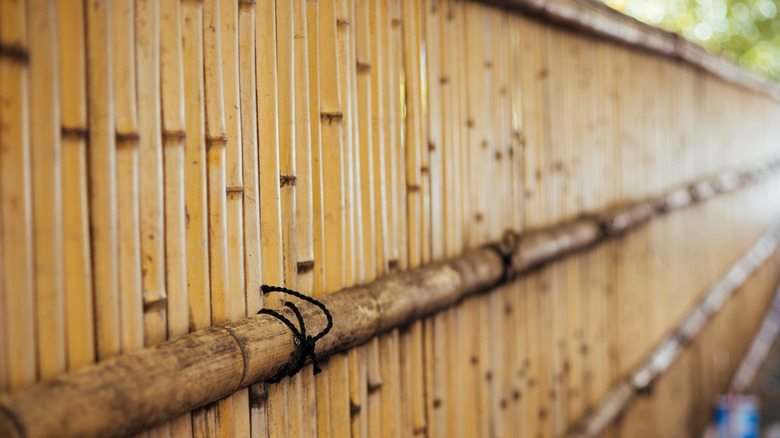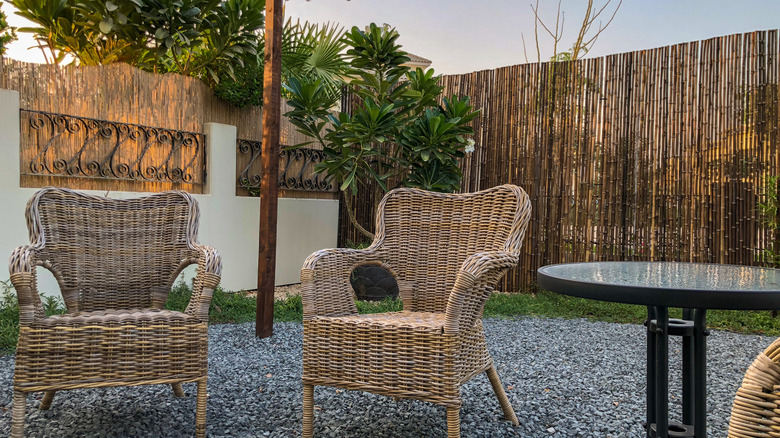Tips For Protecting Patio Bamboo Screens So They Last For Years And Years
You may have come across bamboo screens or fences adorning someone's backyard — you may even own one yourself. That's because the ubiquitous bamboo has proven its versatility and resilience time and time again. Mainly cultivated in Asia, where 65% of the world's bamboo is grown and manufactured, according to Agri Developments, it's considered a prolific building material used around the world for scaffolding, bridges, homes, and furniture. Bamboo is advantageous because of its elasticity, lightness, strength, and cost-effectiveness, and professional builders and DIY enthusiasts consider it a practical choice when installing your own privacy fence.
With proper cleaning, sealing, staining, and maintenance, your bamboo screen or fence's life can stretch up to 20 years. Clean your fence by running a bristle brush over the slats with a versatile cleaning solution of water with vinegar or dish soap and leaving it on for about half an hour before rinsing it out with water. After it completely dries out — a process that could take a day or two — you can proceed to seal your bamboo screen with a store-bought sealant, which will prevent moisture and give it a level of protection from rot, fading, and everyday wear and tear.
Staining rejuvenates your bamboo screen's color while offering a fair amount of protection from weather and fading. Stains also allow you to personalize the look of your bamboo: Choose between transparent and semi-transparent stains for your fence, as well as from a variety of light and dark tones. A good rule of thumb is to stain and seal your fence a year in and to repeat the entire process every 18 months to two years to maintain its quality.
Be vigilant about maintenance and upkeep
Once you've sealed and stained your bamboo, all it needs is a maintenance check from time to time. As bamboo screens are most often propped up against an existing wire fence or wooden posts, make sure to verify that the steel wires holding the bamboo strips together and to the wire fence stay tightly bound. This prevents them from leaning into one another, which can weaken their resistance to harsh winds or storms.
Additionally, as an outdoor fence, bamboo can succumb to mold, insects, fungus attacks, and breakage. If you've noticed traces of mold and mildew, try nipping them in the bud by scrubbing your bamboo fence with a solution of two gallons of water mixed with a tablespoon of fungicide and a bit of dishwashing liquid.
Direct contact with soil also increases your screen's chances of being contaminated by moisture, rot, or pesky creatures that lead to further damage in the long run. By raising your bamboo screen a mere 5 centimeters from the ground, you're effectively eliminating contact with harmful elements. If any insect infestation occurs, a simple spray of water and dishwashing detergent can easily rid your bamboo of pests.

